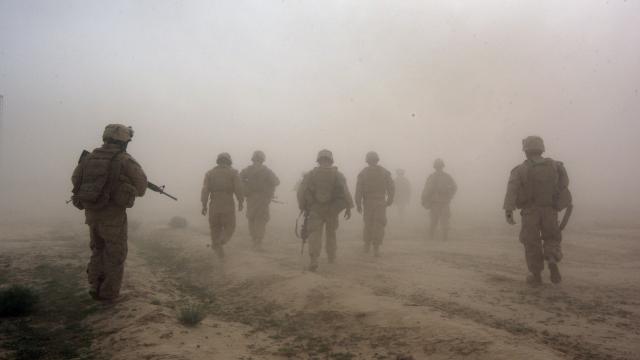The measures taken by U.S. President Donald Trump in international affairs do not reveal ignorance, as some are trying to claim, but are measures which fall within the American political system created by high-ranking commanders and advisers. However, unlike previous presidents who have said one thing while doing another, Trump is the boldest in presenting these issues openly. This means that American policy has not changed except in the style and manner of the current president.
After opening up the files of the NATO, the European Union, migration and the war on terror, Trump is opening the Afghanistan file — the most complicated in American history since the major conflict with the former Soviet Union and the formation of extremist terrorist movements to fight the communist expansion — as if the United States is seeking a total change in its foreign strategy, commensurate with the emerging international powers which have gained political and even military and logistical experience since that time.
For this reason, and because he wants to see an end to the 16 years of war, Trump posed difficult questions to his advisers pertaining to the United States' strategy in Afghanistan which no one has dared pose in the past. The White House has begun to actively review the plans related to Afghanistan, which has led to a division of the national security team, confirming the idea of a conflict between the old guard and the new — the same division with regards to the NATO alliance, the European Union and otherwise.
Trump wants comprehensive answers, a full analysis and a realistic vision of what the Afghan situation will be like in the future, especially as he stresses there are always other options than continuing to fight. The Afghan conflict has reached a stalemate after years of the Kabul government receiving exhaustive aid from the United States and other NATO countries, but Afghan forces have failed to eliminate the Taliban movement or to encircle it.
The scenario on the table now is an imitation of the scenario of the Syrian opposition, in which Trump has ended support for the groups because of their failure to carry out the plan to bring down Syria. Here some of Trump's advisers prefer to cut American losses by withdrawing soldiers and replacing them with private contractors.
Trump's goal is a new American military strategy that does not repeat the mistakes of the past, unlike his predecessor Barack Obama, who imposed control over the deployment of American troops in South Asia. Trump has given his defense secretary the power to set the number of American soldiers and forces in Afghanistan and redefine a regional approach that goes beyond the military framework. The president has strengthened his harmony with the generals who he has surrounded himself with, whether in the government or in the White House. Here lies the change America is seeking, not just in Afghanistan, but, so it seems, on a global level.
This article was translated and edited by The Syrian Observer. Responsibility for the information and views set out in this article lies entirely with the author.


